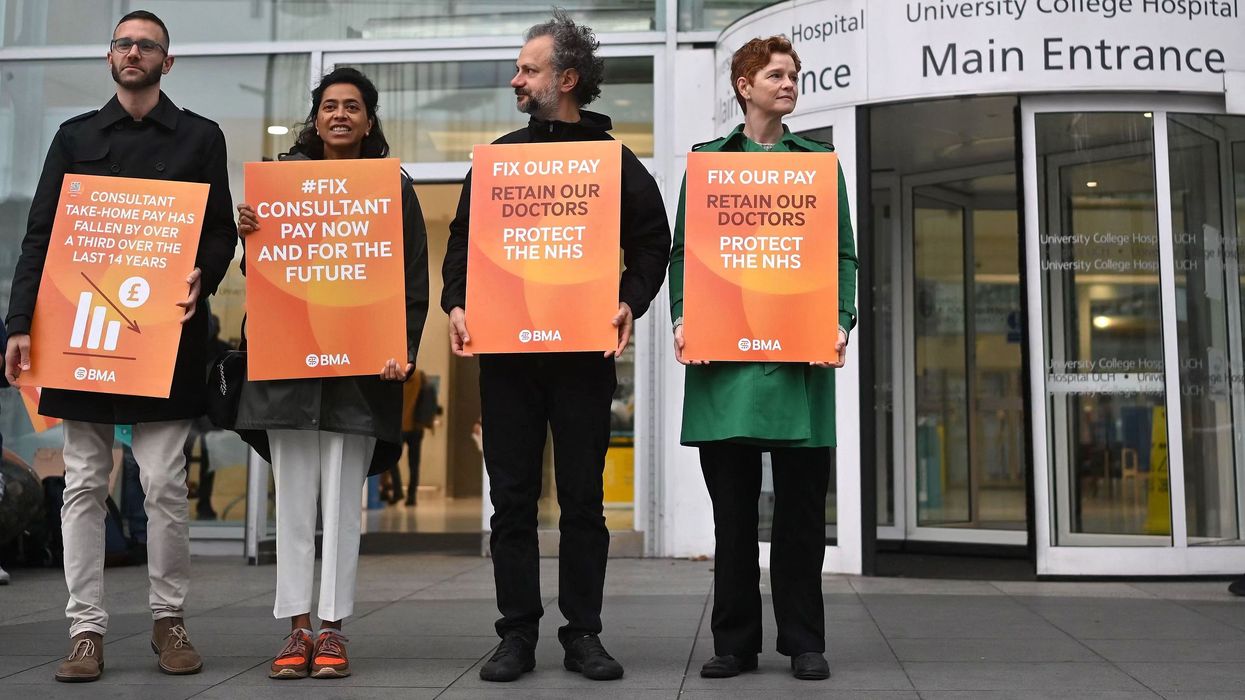Key Summary
- Patients are urged to continue to attend any planned appointments they have scheduled during the strike period
- Primary, urgent, and emergency care services will continue to be available for those who need them
- Around 50,000 resident doctors are expected to walk out from 7 am on Friday (25) until 7 am on Wednesday (30)
NHS Hospitals and local teams in England are preparing to minimise disruption to patient care, as up to 50,000 resident doctors, formerly known as junior doctors, are expected to walk out from 7 am on Friday (25) until 7 am on Wednesday (30).
This will be the twelfth strike from resident doctors, who make up around half of all doctors in the NHS, since March 2023.
This has resulted in 49 days of disruption to NHS services – equivalent to almost ten working weeks of industrial action over this period.
NHS England has asked hospital chief executives to keep routine operations going to the fullest extent possible during this round of strikes and only reschedule appointments and other activity in exceptional circumstances to safeguard patient safety.
It has urged the public to continue to attend any planned appointments they have scheduled over during the strike period unless they have been contacted to reschedule.
Primary, urgent, and emergency care services will continue to be available for those who need them.
The public should use 111 online as the first port of call for urgent but not life-threatening issues during industrial action so that they can be directed to the best place for their needs.
Patients who need emergency medical care should continue to use 999 or come to A&E.
NHS England national medical director professor Meghana Pandit expressed disappointment that the resident doctors have chosen to go ahead with the strike.
“While it will mean some appointments won’t be able to go ahead as planned, we are doing all we can to limit this, and patients should continue to use NHS services in the usual way," she said.
NHS Confederation acute director Rory Deighton said, “It is bitterly disappointing that the British Medical Association (BMA) has not taken the decision to call off the strikes and that patients and the public now face five days of widespread disruption. This is in spite of efforts by the government and the NHS to avert the strike."
He fears the patients will bear the brunt. "We are talking about vital, life-changing care being disrupted."
Health secretary Wes Streeting condemned the BMA’s decision to “recklessly and needlessly opt for strike action”.
“The BMA would have lost nothing by taking up the offer to postpone strike action to negotiate a package that would improve the working lives of resident doctors. By refusing to do so, they will cause unnecessary disruption to patients, put additional pressure on their NHS colleagues and not take the opportunity to improve their own working conditions," he added.
The Labour government had recently hiked the salary of resident doctors by 5.4 percent in this financial year, and this follows an earlier hike of 22 percent.
But the BMA claims the wages are still around 20 percent lower in real terms than in 2008 and are demanding "pay restoration".
Meanwhile, BMA council chair, Dr Tom Dolphin, and the deputy council chair, Dr Emma Runswick, have expressed concern over the NHS decision to keep routine operations running during the strike as they fear it could affect patients' safety.
In a letter to the NHS chief executive, Sir Jim Mackey, they said: “Your decision to instruct hospitals to run non-urgent planned care stretches safe staffing far too thinly, and risks not only patient safety in urgent and emergencies, but in planned care, too."
The previous round of industrial action by resident doctors at the end of June last year saw 61,989 inpatient and outpatient appointments rescheduled, and 23,001 staff were absent from work due to strikes at the peak of the action.
Since strikes began at the end of 2022, the cumulative total of hospital appointments rescheduled is now close to 1.5 million (1,486,258) across the NHS.












